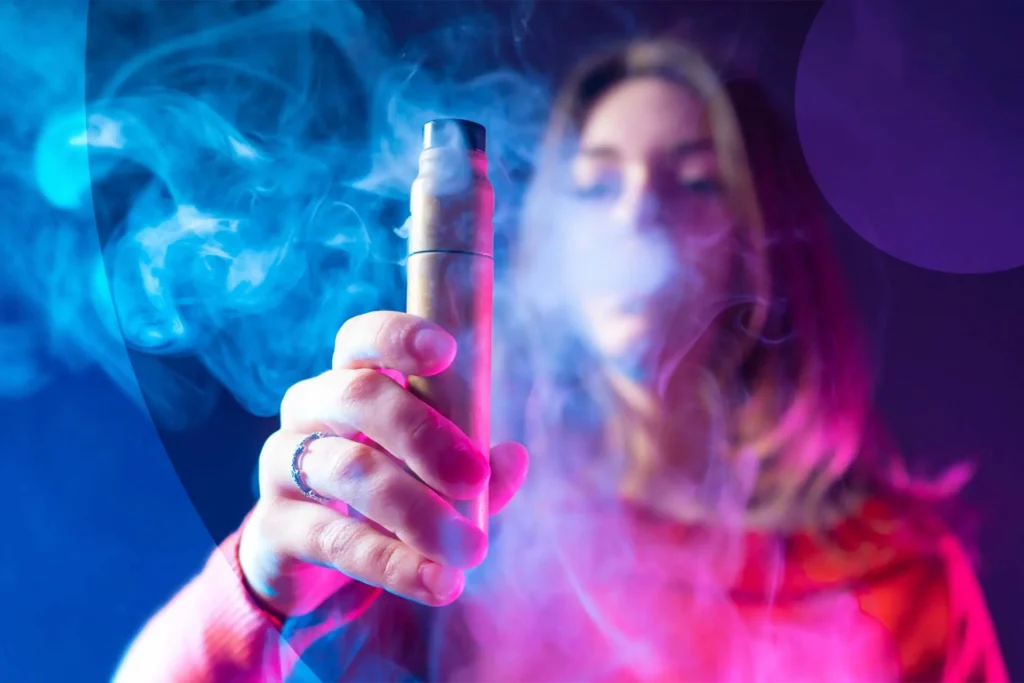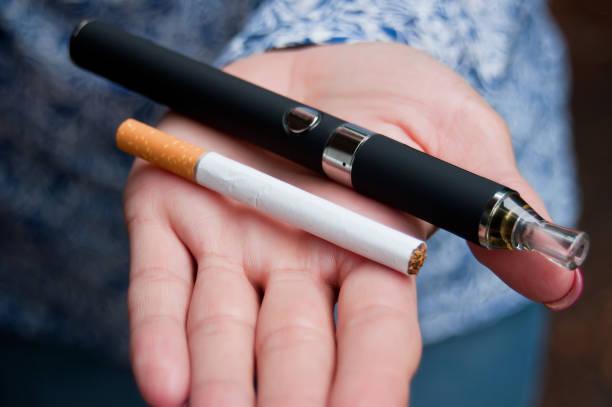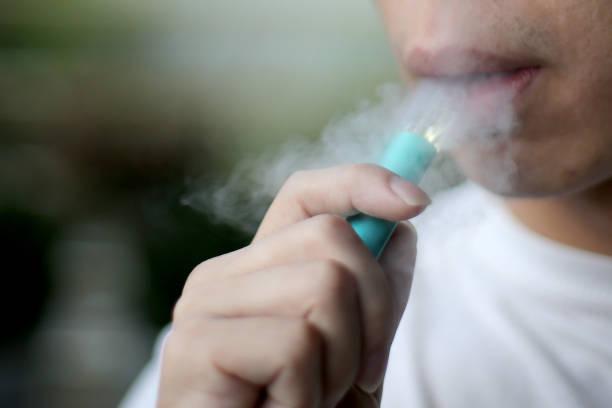Does Nicotine Vape Increase Heart Rate? If you’re a vaper or considering using e-cigarettes, understanding the potential impact of nicotine on your heart is crucial. Nicotine is a stimulant known to affect various bodily functions, including heart rate. In this article, we will delve into how nicotine in vapes can influence your cardiovascular system, whether it leads to an increase in heart rate, and the potential risks associated with vaping. Keep reading to uncover the facts and make an informed decision about your health. 🫀
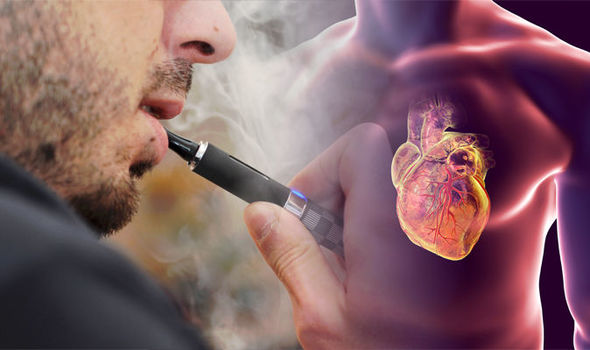
Table of Contents
1. What is a Nicotine Vape?
A nicotine vape is a device designed to simulate the experience of smoking without the harmful effects of combustion. Here’s how it works:
- Definition: A nicotine vape is an electronic smoking devicethat uses a battery-powered heating element to vaporize a liquid (e-liquid or vape juice), which typically contains nicotine, flavoring, and other chemicals. Users inhale the resulting vapor, not smoke. 🌫️
- E-liquid: This liquid consists mainly of nicotine, vegetable glycerin (VG), propylene glycol (PG), and flavoring agents. Nicotine levels in the e-liquid can vary, ranging from low to high. 🌟
- How It Works: The device heats the e-liquid to produce vapor, which the user inhales, bypassing the harmful smoke and tar produced by traditional cigarettes. 🔥
- Nicotine’s Role: Nicotine, a naturally occurring compound in tobacco, is the addictivecomponent of the vape juice. It triggers the release of dopamine in the brain, giving users a sense of pleasure or relaxation. 🎯
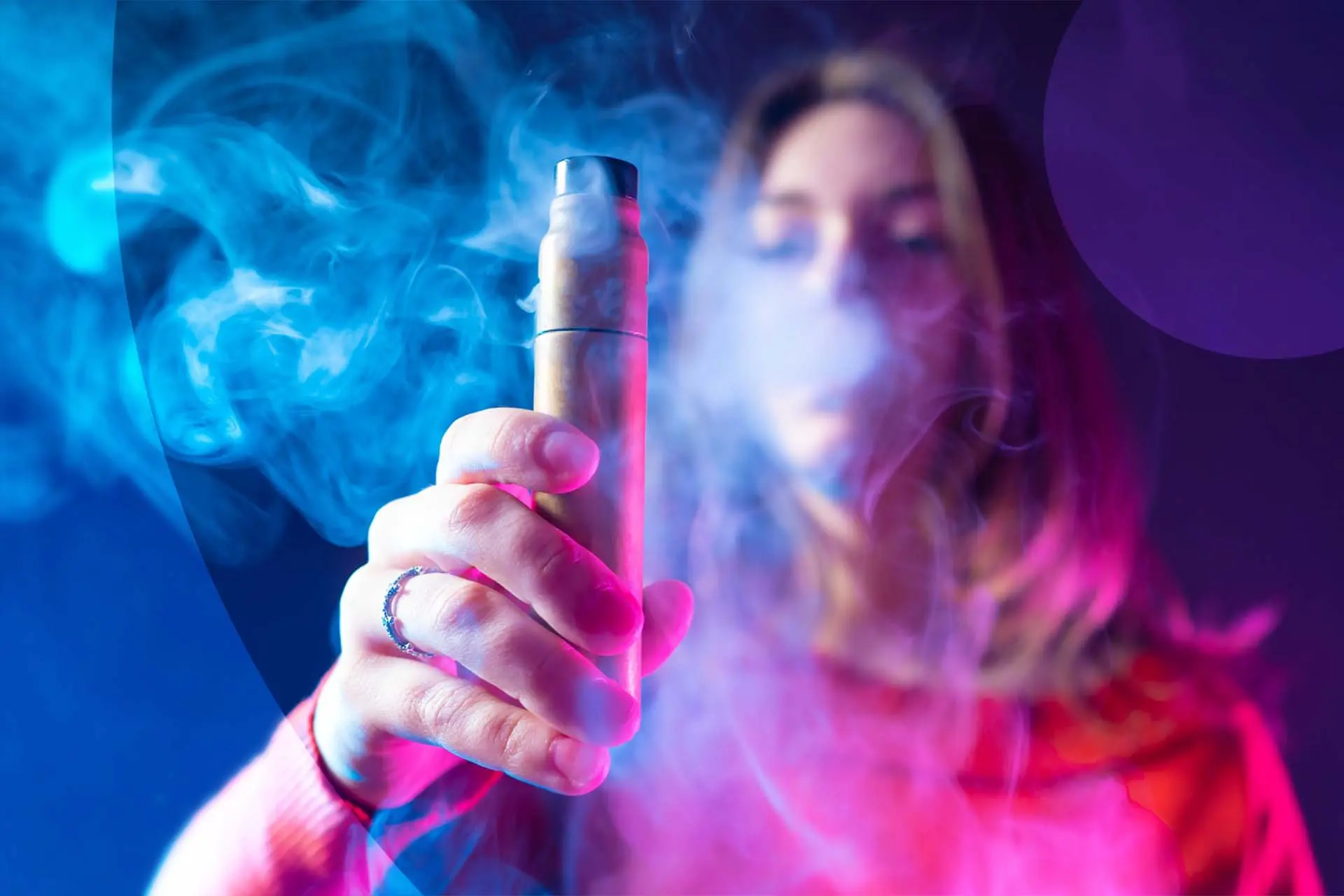
2. How Does Nicotine Vape Affect the Heart?
Although many consider vaping to be a safer alternative to smoking, nicotine still poses significant risks to heart health. Let’s break down how nicotine vapes affect the cardiovascular system, particularly your heart rate. 🫀
1. Increased Heart Rate and Blood Pressure 💥💖
Nicotine is a stimulant, which means it increases the release of adrenaline (the “fight or flight” hormone). This leads to:
- Increased heart rate🏃♂️💨
- Raised blood pressure🩸📈
Both of these can put extra stress on the heart and increase the risk of heart disease, stroke, and heart attacks over time. 🚑
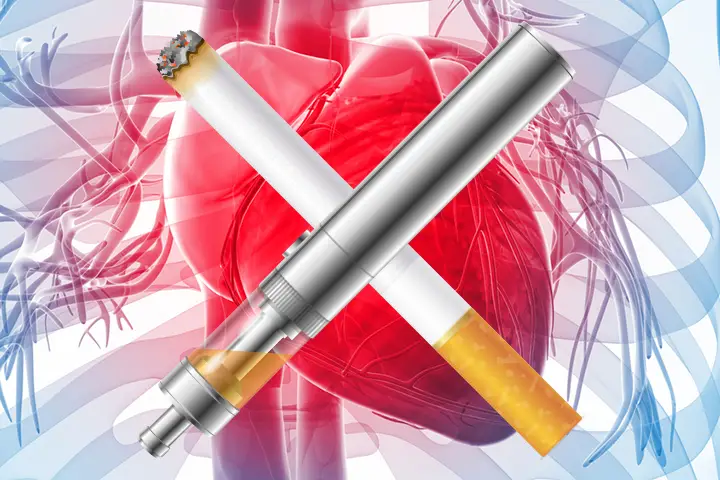
2. Impact on Blood Vessel Health 🩸🫀
Nicotine can damage the endothelium (the inner lining of blood vessels), promoting conditions like arterial stiffness (atherosclerosis). This damage may reduce blood flow, making the heart work harder, and increase the risk of blood clots. 🩸🦠
3. Inflammation 🧯🔥
Nicotine and other chemicals in e-liquids can trigger inflammation in the body. This can worsen artery hardening, which further strains the cardiovascular system. 🏥
4. Irregular Heartbeat (Arrhythmia) 💓❗
Nicotine can affect the electrical system of the heart, leading to conditions like atrial fibrillation (AF), a type of irregular heartbeat. AF can reduce the heart’s ability to pump blood effectively and increase the risk of stroke and heart attacks. ⚡💔
5. Long-Term Effects 🕰️⚖️
The long-term cardiovascular effects of nicotine vaping are still being researched. While short-term studies show increased heart rate and blood pressure, the cumulative effects of vaping over many years remain a medical concern. ⏳🔬
6. Other Chemical Risks 🧪💀
Apart from nicotine, e-liquids contain propylene glycol (PG), vegetable glycerin (VG), and flavoring chemicals. These ingredients, though generally recognized as safe when ingested, can cause inflammation and potential harm when inhaled, especially in the cardiovascular system. ⚠️🚨

2.1 Mechanism of Nicotine-Induced Increase in Heart Rate
Nicotine influences the heart and blood vessels through several physiological mechanisms, leading to an increase in heart rate. The specific mechanisms are as follows:
Activation of the Sympathetic Nervous System
When nicotine enters the body, it stimulates the central nervous system, especially the sympathetic nervous system. The sympathetic nervous system is responsible for the “fight or flight” response, which typically causes an increase in heart rate, elevated blood pressure, and vasoconstriction. Nicotine binds to nicotinic acetylcholine receptors in the brain, activating the sympathetic nervous system.
Through this mechanism, nicotine increases the release of adrenaline (epinephrine), a potent hormone with the following effects:
- Increases heart rate💓
- Constriction of blood vessels, leading to higher blood pressure 💪
Release of Adrenaline
The release of adrenaline is triggered by the stimulation of the sympathetic nervous system. Nicotine activates the sympathetic pathways, prompting the adrenal glands to release large amounts of adrenaline. This adrenaline enters the bloodstream and affects the heart and other organs:
- Increased heart rate: Adrenaline directly stimulates β-adrenergic receptors in the heart, causing the heart to beat more frequently. 💓
- Increased myocardial contractility: This accelerates the heart rate and strengthens each contraction, increasing cardiac output. 💪
- Vasoconstriction: Adrenaline also acts on the smooth muscle in blood vessels, leading to vasoconstriction and an increase in blood pressure. 🩸
Reduction in Vagal Inhibition
The vagus nerve is the counterpart to the sympathetic nervous system and typically serves to slow the heart rate. Nicotine enhances the sympathetic response while inhibiting vagal activity, reducing its ability to suppress the heart rate. As a result, heart rate increases ⏩.
Impact on Cardiac Electrophysiology
Nicotine not only affects the heart through the nervous system but may also directly alter the heart’s electrical properties. Studies show that nicotine can modify the heart’s ion channels (particularly sodium, calcium, and potassium channels), changing the heart’s conduction characteristics. This can make the heart more prone to excessive excitability, leading to an accelerated heart rate ⚡.
Metabolic Changes
Nicotine also affects the metabolism of fatty acids and glucose, influencing the body’s metabolic state. This alteration in metabolism may indirectly increase the demand for oxygen, causing the heart to work harder to meet the increased oxygen requirement 💨.
2.2 Relationship Between Nicotine-Induced Tachycardia and Smoking
Nicotine-induced tachycardia (increased heart rate) is a key negative effect of smoking (both traditional cigarettes and e-cigarettes) on the cardiovascular system. The impact of smoking on heart rate varies in the short and long term, and both are closely linked to cardiovascular health. Below are the short-term and long-term effects of nicotine-induced tachycardia:
Short-Term Effects
Immediate Increase in Heart Rate
Mechanism: When smoking, nicotine quickly enters the bloodstream and activates the sympathetic nervous system. This stimulation leads to the release of adrenaline, causing the heart rate to rise rapidly, usually within minutes after smoking. ⏱️
Effect: The heart rate increase can last from several minutes to an hour, with an increase of 10-20 beats per minute. For healthy individuals, this increase typically normalizes quickly. However, for those with existing cardiovascular conditions, the accelerated heart rate may trigger issues such as angina or other heart problems 💔.
Elevated Blood Pressure
Mechanism: Nicotine causes blood vessel constriction and increases vascular resistance, which raises blood pressure. This rise is due to the effects of adrenaline, which tightens blood vessels, making the heart work harder to pump blood. 💉
Effect: In the short term, the elevated heart rate and blood pressure typically return to normal after smoking. However, frequent exposure can cause lasting damage to the heart and blood vessels. 🔄
Quick Recovery
After smoking, heart rate and blood pressure typically normalize within a short time, but this recovery doesn’t necessarily indicate complete cardiovascular health. Repeated short-term stress, especially from frequent smoking, adds strain to the heart and blood vessels over time ⏳.
Long-Term Effects
Sustained Increased Heart Rate
Mechanism: Long-term smoking causes continuous activation of the sympathetic nervous system, resulting in a chronically elevated heart rate even at rest. Over time, the body becomes more responsive to nicotine, leading to a persistently higher heart rate. ⏱️
Effect: This ongoing increase in heart rate places a continuous strain on the heart, potentially leading to heart muscle wear and raising the risk of cardiovascular diseases like coronary artery disease and heart failure 🏥.
High Blood Pressure and Arterial Hardening
Mechanism: Chronic nicotine exposure leads to vasoconstriction and elevated blood pressure. Over time, this can contribute to the formation of arteriosclerosis (hardening of the arteries). The prolonged high blood pressure damages the blood vessel walls, leading to the buildup of fats and other substances, which thickens the arteries. 🏥
Effect: Arteriosclerosis reduces vascular elasticity, further increasing blood pressure and raising the risk of cardiovascular events like heart attacks, strokes, and other life-threatening conditions. Over time, high blood pressure and arterial hardening accelerate cardiovascular aging ⏳.
Increased Risk of Arrhythmias
Mechanism: Chronic stimulation of the sympathetic nervous system from nicotine not only increases heart rate but can also trigger arrhythmias (such as atrial fibrillation or premature ventricular contractions). Nicotine can alter the electrical properties of the heart, increasing the risk of arrhythmias. ⚡
Effect: Arrhythmias can cause reduced heart efficiency, and in severe cases, may lead to heart failure, cardiac arrest, or stroke 🧠💔.
Worsening of Pre-existing Heart Disease
Mechanism: For those with existing heart disease (like coronary artery disease or heart failure), long-term smoking exacerbates the strain on the heart. Nicotine increases the heart’s oxygen demand, while the carbon monoxide in cigarette smoke decreases the oxygen content in the blood, leading to a state of hypoxia. This worsens heart disease symptoms 🔥.
Effect: For long-term smokers with heart disease, symptoms may become more severe, raising the risk of acute heart events, heart failure, and death 💔💀.
Increased Risk of Blood Clots
Mechanism: Long-term smoking and nicotine exposure increase blood viscosity and promote platelet aggregation, increasing the likelihood of clot formation. These clots can lead to heart attacks, strokes, or pulmonary embolism. 🩸
Effect: Smokers are at significantly higher risk for clot-related diseases. Once a clot forms, it can cause irreversible damage to the heart or brain, leading to serious and potentially fatal outcomes ⚠️.
3. Impact of Nicotine Vape on Different Groups
Nicotine vapes don’t affect everyone the same way. The impact can vary based on age, gender, and health condition.
1. Teenagers & Young Adults 👦👧
Nicotine can disrupt brain development in young people, affecting memory, learning, and emotional regulation. Vaping at a young age can increase the likelihood of developing a nicotine addiction and lead to mental health issues like anxiety or depression. 🧠🌀
2. Adults (Smokers vs Non-Smokers) 👨👩👧👦
- For Smokers: Vaping may help some smokers reduce exposure to harmful substances in traditional cigarettes, but the heart risks of nicotine remain. 💔🚬
- For Non-Smokers: Using nicotine vapes can increase the risk of addictionand cardiovascular problems. 🚷💔
3. Pregnant Women 🤰👶
Nicotine during pregnancy can affect fetal development, causing issues like low birth weight, premature birth, and even miscarriage. 🍼👶
4. People with Heart Disease ❤️🩸
Nicotine can make existing heart conditions worse, raising the risk of complications like heart attacks, arrhythmias, and stroke. 🏥💔
5. People with Chronic Conditions 🏥⚖️
For those with conditions like diabetes or high blood pressure, nicotine can further disrupt blood sugar regulation and blood pressure, worsening the situation. 🍬🩸
4. Does a No Nicotine Vape Affect Heart Rate?
Compared to nicotine vapes, a no nicotine vape generally has a less direct impact on heart rate, as it doesn’t contain nicotine, a substance that has significant effects on the cardiovascular system. However, even without nicotine, using a no nicotine vape can still cause certain effects on the body, including potential impacts on heart rate. These effects are mainly related to the following factors:
1. Physical Irritation from Inhaled Gases
Even without nicotine, the vapor from e-cigarettes still contains other chemicals such as propylene glycol, glycerin, flavorings, and other additives. Inhaling these ingredients might lead to:
- Airway Reactions: Some individuals may have allergic or irritation responses to these chemicals, causing discomfort in the throat or lungs, which can lead to minor fluctuations in heart rate. 🌬️💨
- Short-Term Heart Rate Changes: Some studies suggest that inhaling vape vapor may have short-term effects on the respiratory system, such as shortness of breath or coughing. These changes can sometimes lead to temporary heart rate fluctuations, especially in more sensitive individuals. 🫁💓
2. Psychological Factors
Even when using a no nicotine vape, users might still experience psychological effects:
- Habit and Psychological Dependence: Some people may develop a psychological dependency on vaping, feeling relaxed or satisfied after inhaling vapor. This feeling of relief or pleasure could indirectly affect heart ratedue to changes in emotional state. 🧠💨
- Emotional Responses: Vaping could trigger either relaxing or anxiety-inducing emotional reactions, especially in stressful situations. These mood swings can lead to changes in heart rate, as stress and relaxation both affect the autonomic nervous system. 😌😖💓
3. Potential Effects of Other Chemicals
No nicotine vapes contain chemicals other than nicotine, such as flavorings, that could have minor effects on cardiovascular health:
- Certain flavorings, like cinnamonor menthol, might release additional substances when heated, which could slightly impact the cardiovascular system. However, these effects are generally much smaller compared to the effects of nicotine itself, and the research is still unclear. 🧪🍬
4. Uncertainty of Long-Term Effects
Currently, there’s limited research on the long-term effects of no nicotine vaping on the cardiovascular system. While short-term effects on heart rate are minimal, prolonged use may still pose potential risks. This is especially true if the accumulation of chemicals in the body leads to chronic impacts on the heart and blood vessels. ⏳💔
4.1 Is No Nicotine Vape Healthier Than Nicotine Vape?
A no nicotine vape may be less harmful than a nicotine vape in some respects, especially since it lacks nicotine’s addictive and cardiovascular effects. However, it is not entirely risk-free, as it still involves exposure to other chemicals and potential long-term dangers. Here’s a comparison of the two:
1. Nicotine Dependence and Addiction
- Nicotine Vapes: Nicotine is a highly addictive substance. Long-term use can lead to dependency, increase the risk of cardiovascular disease, and impair brain development, especially in adolescents. Nicotine accelerates heart rate, raises blood pressure, and can cause anxiety, mood swings, and other mental health issues. 💔🧠
- No Nicotine Vapes: Since there is no nicotine, there is no direct risk of addiction or cardiovascular impact from nicotine itself. This makes no nicotine vapesa better option for avoiding nicotine dependence. 🚫💨
2. Cardiovascular Health
- Nicotine Vapes: Nicotine directly affects the cardiovascular system by increasing heart rate, elevating blood pressure, and potentially contributing to arterial stiffness. Over time, this increases the risk of heart disease, stroke, and other cardiovascular problems. 💔⚠️
- No Nicotine Vapes: Although there’s no nicotine to affect heart rate directly, other chemicalsin the vapor, such as propylene glycol and glycerin, could still have some minor effects on blood vessels and the heart. However, these effects are generally weaker compared to those of nicotine. 🫁💨
3. Respiratory Health
- Nicotine Vapes: The vapor from nicotine vapes contains substances like propylene glycol, glycerin, and various flavorings, which, when heated, may release harmful particles. This can irritate the respiratory system, potentially leading to coughing, shortness of breath, and, over time, more serious conditions like chronic bronchitisor emphysema. 🚬🫁
- No Nicotine Vapes: Although no nicotine vapesdon’t have nicotine’s direct lung-related effects, the chemicals still have the potential to irritate the lungs. Some flavorings (such as cinnamon or menthol) might release harmful substances when heated, which could lead to respiratory issues over time. 🍃😷
4. Immune System
- Nicotine Vapes: Nicotine can suppress immune function, making the body more vulnerable to infections. Over time, it may weaken the immune response, leading to an increased risk of illness. 🦠❌
- No Nicotine Vapes: While no nicotine vapesdon’t have nicotine’s direct immunosuppressive effects, the chemicals in the vapor (like propylene glycol and glycerin) may still cause inflammation, which could affect immune function and increase susceptibility to infections. 🤧🦠
5. Oral Health
- Nicotine Vapes: Nicotine can cause dry mouth, gum problems, and oral ulcers, increasing the risk of dental issuesover time. 🦷
- No Nicotine Vapes: Even without nicotine, the propylene glycoland glycerin in the vapor can still cause dry mouth, potentially leading to oral health issues. While there’s no nicotine-related effect, oral health risks may still exist with long-term use. 🦷💧
6. Mental Health
- Nicotine Vapes: Nicotine can cause mood swings, anxiety, depression, and other mental health problems, especially with long-term use. It can also disrupt brain development in adolescents, leading to emotional instability and behavioral problems. 🧠💔
- No Nicotine Vapes: While no nicotine vapesdon’t have the same direct mental health effects as nicotine, the psychological effects of vaping can still exist. Some users may experience relaxation or pleasure from the act of vaping, while others might feel anxious or stressed, especially in high-pressure situations. 😌😬
7. Potential Harmful Chemicals
- Nicotine Vapes: In addition to nicotine, vaping liquids may contain harmful chemicals that are released when heated, such as formaldehydeand acetaldehyde, which can harm the lungs and increase the risk of cancer. 🔥💥
- No Nicotine Vapes: While no nicotine vapesdon’t have nicotine, they still contain chemicals like propylene glycol, glycerin, and flavorings, some of which can be harmful when heated. Certain flavoring agents (e.g., cinnamon, menthol) may release toxic compounds that could harm the lungs or lead to respiratory damage over time. ⚠️🍃
5. What are the potential health risks of nicotine vapes?
Using nicotine vapes can have various potential health risks, especially for long-term users or specific groups like teenagers, pregnant women, and those with cardiovascular conditions. While e-cigarettes are often considered less harmful than traditional cigarettes, they are still not risk-free. Here’s a breakdown of the potential health risks associated with nicotine vapes:
1. Cardiovascular Impact ❤️💔
Nicotine significantly affects the cardiovascular system:
- Increased heart rate & blood pressure: Nicotine stimulates the adrenal glands to release adrenaline, causing an increase in heart rate and blood pressure. Prolonged exposure can lead to hypertension, atherosclerosis, and other cardiovascular issues.
- Increased risk of heart disease: Nicotine puts extra stress on the heart, potentially increasing the risk of heart disease, heart failure, and strokes.
2. Respiratory Issues 🌬️🚑
Although e-cigarettes don’t contain tar, they can still pose significant risks to the respiratory system:
- Lung irritation: E-liquid in vapes contains chemicals like propylene glycol and glycerin, which when heated, release vapor that can irritate the airways. This can lead to symptoms like sore throat, coughing, or shortness of breath.
- Risk of lung disease: Some studies suggest that long-term use of e-cigarettes can lead to “vaping-associated lung injury” (VAPI), which may cause acute respiratory distress syndrome (ARDS) and even death. The inhalation of chemicals from vaping can also increase the risk of chronic bronchitis and emphysema.
3. Brain Impact 🧠🧠
Nicotine can have profound effects on the developing brain, particularly in teenagers:
- Cognitive function decline: Nicotine affects neurotransmitters in the brain, such as dopamine and norepinephrine, which can impair focus, learning ability, and memory.
- Mental health issues: Nicotine use is associated with anxiety, depression, impulsivity, and addictive behaviors.
4. Risks to Pregnant Women & Fetuses 🤰👶
Nicotine use during pregnancy is especially harmful:
- Fetal development issues: Nicotine crosses the placenta and can interfere with fetal development, affecting the brain, cardiovascular system, and lungs. This increases the risk of low birth weight, preterm birth, and miscarriage.
- Neurodevelopmental problems: Nicotine exposure during pregnancy may increase the likelihood of attention deficit hyperactivity disorder (ADHD) and other behavioral issues in children.
- Maternal health risks: Pregnant women who vape may experience high blood pressure, preterm labor, and oxygen deprivation to the fetus.
5. Exposure to Harmful Chemicals 🧪⚠️
Even though e-cigarette vapor generally contains fewer harmful substances than traditional cigarette smoke, it still contains various chemicals that can be harmful:
- Toxic substance accumulation: Chemicals like acetaldehyde, acetone, and formaldehyde can be released when e-liquid is heated. These substances can harm the lungs and other organs.
- Metal exposure: Some vape devices contain heating elements that may release harmful metals (like lead, nickel, and chromium), which can damage the lungs and other organs.
6. Oral Health 🦷👄
Nicotine vapes can negatively impact oral health:
- Increased risk of oral diseases: Nicotine can dry out the mouth, reduce saliva production, and increase the risk of gum disease, mouth ulcers, and periodontal disease.
- Altered taste and smell: Long-term use of vapes can dull your sense of taste and smell, making food and beverages less enjoyable.
6. Why might Geek Bar Pulse No Nicotine Vape and RAZ TN9000 No Nicotine Vape become the best disposable vapes of 2025?
1. Health Advantages of Nicotine-Free Vapes 💪🚭
- Reduced addiction risk: These devices are nicotine-free, which means they eliminate the addictive properties of nicotine. This makes them a safer alternative for those who wish to avoid nicotine addiction, such as teenagers, pregnant women, and those trying to quit smoking.
- Lower cardiovascular impact: Since they don’t contain nicotine, these vapes don’t elevate heart rate or blood pressure, which makes them a better option for those concerned about their heart health.
2. Innovation & High-Quality Design 💡🔧
- Geek Bar Pulse: Geek Bar, a well-known brand, has put considerable effort into innovative design and technology. The Pulse series offers a premium vaping experience with a wide variety of flavors, appealing to users who want a flavorful and satisfying experience. The “pulse” feature might represent a new way to enhance vapor smoothness and taste.
- RAZ TN9000: RAZ’s TN9000 model is designed to offer a long-lasting, high-performance disposable vape experience. With a large battery, innovative vaporization technology, and optimized liquid systems, this device promises a smooth and durable user experience, perfect for those looking for convenience without compromising on performance.
3. Convenience & User Experience 🎯📦
- Disposable design: The biggest advantage of disposable vapes like Geek Bar Pulse and RAZ TN9000 is that they require no refilling or charging. This makes them perfect for users who are busy or simply don’t want to deal with maintenance.
- Flavor variety: Both brands likely offer a wide range of flavors such as fruit, mint, and desserts. We have a wide range of geek bar pulse flavors.This variety enhances the overall vaping experience and appeals to users who enjoy experimenting with different tastes.You can enjoy geek bar flavors and raz vape flavors.
4. Tech Innovations & Device Optimization 🔬⚙️
- Advanced atomization technology: Both devices are likely to feature new atomization technologies that provide smoother and more refined vapor. This helps improve the taste and reduces throat irritation, offering a better overall vaping experience.
- Longer lifespan: As disposable vape technology advances, devices like Geek Bar Pulse and RAZ TN9000 will likely offer longer-lasting batteries and more liquid capacity. This means users can enjoy extended use without having to worry about frequent replacements.
6.1 Will Geek Bar Pulse No Nicotine Vape and RAZ TN9000 No Nicotine Vape affect heart rate?
Both Geek Bar Pulse No Nicotine Vape and RAZ TN9000 No Nicotine Vape generally won’t directly impact heart rate since they don’t contain nicotine, the primary substance responsible for heart rate acceleration. However, there could still be indirect effects on heart rate due to factors like:
Psychological & Physiological Effects 🧠💖
Psychological effects: The act of vaping can bring feelings of relaxation or pleasure, which could indirectly affect heart rate. For those who are used to smoking or vaping, the act of inhaling vapor may cause a temporary sense of calm, which might influence heart rate slightly.
Habitual reactions: Regular users of vapes may experience a physiological response that can cause a brief fluctuation in heart rate, though this would likely be much milder than the effects of nicotine.
Airway Irritation & Respiratory Responses 🌬️
Even without nicotine, inhaling the vapor may cause slight irritation to the throat or airways, especially for sensitive individuals. This irritation could lead to a mild stress response from the body, causing a temporary increase in heart rate.
Vapor Composition 💨🍃
The vapor may contain various chemical additives, such as glycerin or certain flavorings (like mint or cinnamon), which can cause slight irritation when heated. This could lead to a minor increase in heart rate in some people, but these effects are generally mild.
Inhalation Volume & Frequency 🌬️💨
Larger or more frequent inhalations could cause shortness of breath or mild respiratory discomfort, which might briefly elevate the heart rate due to physical exertion or discomfort.The Geek bar Price is also very affordable.
6.2 Are Geek Bar Pulse No Nicotine Vape and RAZ TN9000 No Nicotine Vape healthier options?
While Geek Bar Pulse No Nicotine Vape and RAZ TN9000 No Nicotine Vape are healthier options compared to nicotine-containing vapes and cigarettes, they are not entirely without risk. Here’s why:
Reduced Addiction Risk 🚫🧠
No nicotine means these devices don’t carry the addictive risks of nicotine addiction. This makes them a better choice for those trying to avoid nicotine dependence.
Less Impact on Cardiovascular Health ❤️💪
Without nicotine, these vapes don’t have the heart rate-boosting and blood pressure-raising effects that come with nicotine. This makes them a safer choice for cardiovascular health compared to nicotine vapes.
Respiratory Risks Remain 🌬️
Even though these vapes don’t contain nicotine, they still release chemicals like propylene glycol, glycerin, and various flavorings. These can irritate the respiratory system, and long-term use could increase the risk of chronic conditions like bronchitis or even “vaping-associated lung injury” (VAPI).
Potential Impact on Oral Health 🦷👄
Like all vapes, nicotine-free versions can still cause mouth dryness, gum irritation, and increase the risk of oral diseases due to the chemicals in the vapor.
Psychological Impact 💭💭
While nicotine-free vapes don’t cause addiction,
7. Story: David’s Journey with Nicotine Vaping and Increased Heart Rate
Background:
David, a 28-year-old young man from the UK, works at a fast-paced advertising agency. With a hectic lifestyle and high stress levels, he’s always looking for ways to unwind. A few years ago, he was introduced to nicotine vaping by friends. Initially, it was just an occasional thing, but over time, it became a part of his daily routine. David didn’t have any prior smoking habits, and he thought that vaping was a safer alternative to traditional cigarettes. He didn’t know much about the health risks but considered it as a way to “relieve stress” 🔋💼.
The Story:
David’s first experience with vaping was on a Friday night at a bar. His friend handed him an e-cigarette and invited him to try it. David took a puff and immediately liked the flavor. It wasn’t the harsh taste of tobacco but a refreshing mix of fruit and mint. His friend assured him that vaping wasn’t as harmful as smoking regular cigarettes, and so David began using it occasionally. 🍃🍓
As months went by, David started using his vape more frequently at work. Whenever he felt stressed, anxious, or was waiting for a big meeting, he would take a few puffs to help him “calm down.” Vaping became his go-to tool to stay relaxed during stressful times. He even started using it during lunch breaks, while working late into the night, and sometimes even in the morning to “wake up.” He felt that vaping helped him handle stress better and improved his work performance 💻💨.
However, after a few months, David began to notice some unusual changes. One day, after vaping, he felt more relaxed, but suddenly his heart started racing. His heart was beating fast, much faster than usual. At first, he brushed it off, thinking it was just a result of his earlier stress melting away or a temporary physical reaction. 😓💓
But soon, he started noticing that his heart rate would spike more frequently. One particularly busy workday, after several puffs of his vape, David felt a tightness in his chest and his heart was pounding fast. Panicked, he pulled out his phone to check his pulse and realized his heart rate was around 120 beats per minute, much higher than his usual 70-80 bpm. This made him feel uneasy, and he started wondering if vaping was affecting his heart. 😟📱
Discovery and Exploration:
Curious and concerned, David began researching the effects of nicotine on the body, especially on the cardiovascular system. He read several studies and expert opinions, and he discovered that nicotine is a stimulant that can increase adrenaline levels, which in turn speeds up heart rate and raises blood pressure. While e-cigarettes may be less harmful than traditional cigarettes, they still contain nicotine, which can have a much stronger impact on the body than David had originally thought. 😯🔍
David also found out that some people who vape, especially with high-nicotine e-liquids, may experience symptoms like palpitations, anxiety, and even dizziness. Although David didn’t have severe symptoms, he decided to reduce his vaping frequency and be more mindful of his health. 🧘♂️⚖️
Change and Reflection:
David decided it was time to make a change. He started cutting back on how often he used his vape and began exploring healthier ways to manage stress. He turned to exercise, meditation, and deep breathing exercises to relax instead. David also paid closer attention to his diet and sleep habits, realizing that effective stress management didn’t have to rely on vaping or any other external tools 🌿🏋️♂️.
After a few weeks, David noticed a positive shift. His heart rate returned to normal, and he no longer experienced frequent spikes. He felt more focused, his mood was more stable, and he had a better overall sense of well-being. Although David still used his vape occasionally, he realized that it was not the best solution for stress, and it could actually bring about health risks—especially for his heart. 💖💡
8. Vaping safety: How to Handle Increased Heart Rate from Nicotine Vaping?
If you’ve noticed that using a nicotine vape is causing your heart rate to increase, it’s important to address this issue. Nicotine is a stimulant that can trigger your nervous system, leading to faster heartbeats and higher blood pressure. Here are some strategies you can follow to manage and reduce the impact of nicotine on your heart:
1. Reduce or Stop Using Nicotine Vapes 🚭⚖️
- Lower Nicotine Intake: If vaping increases your heart rate, consider gradually reducing the nicotine strength in your vape juice. Many brands offer low-nicotine or nicotine-free This can help ease the strain on your heart. 🌱🛑
- Quit Vaping: The most effective way to stop heart rate spikes is to stop vaping nicotine This can help improve both your heart rate and overall health. Quitting vaping reduces the risks associated with nicotine and supports long-term well-being. 🚫💪
2. Adopt Healthier Stress-Relief Methods 🌿🧘♂️
- Exercise Regularly 🏃♂️: Engaging in aerobic exercise like walking, running, cycling, or swimming helps improve heart health. It can also release stress and reduce your reliance on nicotine. Regular physical activity strengthens your heart and helps regulate your heart rate. 🏅💓
- Meditation & Deep Breathing 🧘♀️: Practices like yoga, meditation, or deep breathing exercises can significantly reduce anxiety and calm your mind, helping you avoid using your vape for stress relief. These techniques also help normalize your heart rate and improve emotional balance. 🌸🧘♂️
- Relaxation Techniques: Try activities that help you relax, like taking a hot bath, getting a massage, or listening to calming music. These can all aid in reducing stress and balancing your heart rate. 🛁🎶
3. Focus on Your Diet and Lifestyle 🍏🍽️
- Healthy Diet 🥦: Eating a well-balanced diet can support your heart health. Avoid foods and drinks with high caffeine content (like coffee or energy drinks) as they can also increase your heart rate. Include more antioxidants, Omega-3 fatty acids, and fiber in your meals (like fatty fish, nuts, and leafy greens). 🥗🍣
- Get Enough Sleep 🛏️: Ensure you maintain a regular sleep schedule to allow your body to rest and recover. Poor sleep can worsen anxiety and stress, which can, in turn, affect your heart rate. Try to aim for 7-9 hours of sleep each night. 🌙🛌
4. Seek Medical Help if Necessary 👩⚕️💡
- Consult a Doctor: If you experience frequent heart palpitations or a fast heart rate while using nicotine vapes, it’s important to speak to a healthcare professional. They can evaluate your heart health and offer specific advice. 🩺👨⚕️
- Heart Check-up 💓: If you have a family history of heart problems or existing cardiovascular conditions, your doctor may recommend an ECG(electrocardiogram) or other tests to check your heart function. This is especially important if you’re concerned that nicotine might be affecting your heart health. 🏥💖
- Mental Health Support 💬: If your vaping habits are driven by anxiety, stress, or other emotional factors, speaking with a therapist or counselor can help. They can assist you in managing stress without relying on nicotine. 🧠💚
5. Understand the Effects of Nicotine 🧠💥
- Research Nicotine’s Impact: Nicotine is a powerful stimulant that increases adrenaline levels, which can speed up your heart rate and raise blood pressure. Understanding how nicotine affects your body can help you recognize the importance of reducing or stopping your vape use to protect your heart health. 📚⚠️
9. Why Choose Our Vape Shop?
Looking for vape shops near me that offer the best selection and top-quality service? Well, look no further! Our shop has everything you need, whether you’re a newbie or a seasoned vaper! 😎✨
Here’s why you should choose us for all your vaping needs:
1. Wide Selection of Nicotine Vapes & No Nicotine Vapes 🧳💨
We offer a wide range of e-liquids and vape devices, including both nicotine vapes and no nicotine vapes. Whether you’re looking to enjoy the satisfaction of nicotine or prefer a nicotine-free experience, we have something for everyone. 💯🌱
Nicotine vapes provide that satisfying hit for those who need a little extra boost, while no nicotine vapes are perfect for those who want to enjoy the flavors without the stimulating effects of nicotine. So, whether you want a burst of energy or a relaxed, smoke-free vibe, we’ve got you covered! 🍓🍉
2. Understand the Effects of Nicotine on Heart Rate ❤️💓
Does nicotine increase heart rate? Yes, nicotine is a known stimulant that can increase your heart rate and blood pressure. 🏃♂️⚡ This is why we educate all our customers about vaping safety. We want you to enjoy your vape experience while being aware of how nicotine can affect your body.
If you’re concerned about the impact of nicotine on your health, don’t worry! We offer various options that allow you to reduce nicotine levels gradually or switch to no nicotine vape juices. 🚭💡
3. Healthy Vape Options for a Safer Experience 🌿💪
At our shop, we prioritize vaping safety and provide you with products designed to enhance your experience while minimizing harm. Whether you’re looking for nicotine vapes or no nicotine vapes, we ensure that all our products are sourced from reputable manufacturers. 🏅
We stock organic e-liquids with fewer chemicals, premium vape devices, and nicotine salts to give you smoother, cleaner puffs. Choose a healthy vape that fits your lifestyle, and rest assured that you’re making the right choice for your health! 🌱✅
10. Conclusion
While nicotine vapes may seem less harmful than traditional smoking, they still pose significant risks to the heart and overall cardiovascular health. Nicotine can increase heart rate and blood pressure, increasing the risk of heart disease, stroke, and arrhythmia. 💔 For non-smokers, using nicotine vapes can introduce addiction and potential health problems.
So, while vaping might be a less harmful alternative to smoking, it’s far from risk-free. 🚷💔You can search for our store at google.com.
